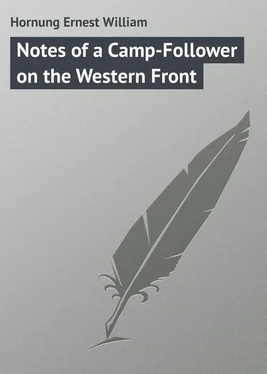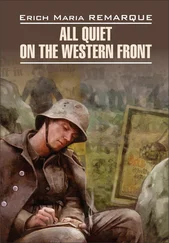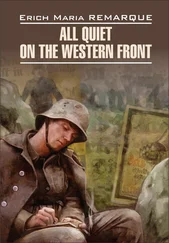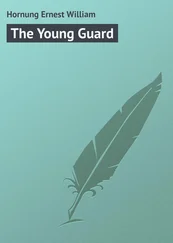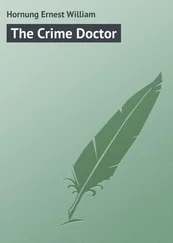Ernest Hornung - Notes of a Camp-Follower on the Western Front
Здесь есть возможность читать онлайн «Ernest Hornung - Notes of a Camp-Follower on the Western Front» — ознакомительный отрывок электронной книги совершенно бесплатно, а после прочтения отрывка купить полную версию. В некоторых случаях можно слушать аудио, скачать через торрент в формате fb2 и присутствует краткое содержание. Жанр: foreign_prose, на английском языке. Описание произведения, (предисловие) а так же отзывы посетителей доступны на портале библиотеки ЛибКат.
- Название:Notes of a Camp-Follower on the Western Front
- Автор:
- Жанр:
- Год:неизвестен
- ISBN:нет данных
- Рейтинг книги:3 / 5. Голосов: 1
-
Избранное:Добавить в избранное
- Отзывы:
-
Ваша оценка:
- 60
- 1
- 2
- 3
- 4
- 5
Notes of a Camp-Follower on the Western Front: краткое содержание, описание и аннотация
Предлагаем к чтению аннотацию, описание, краткое содержание или предисловие (зависит от того, что написал сам автор книги «Notes of a Camp-Follower on the Western Front»). Если вы не нашли необходимую информацию о книге — напишите в комментариях, мы постараемся отыскать её.
Notes of a Camp-Follower on the Western Front — читать онлайн ознакомительный отрывок
Ниже представлен текст книги, разбитый по страницам. Система сохранения места последней прочитанной страницы, позволяет с удобством читать онлайн бесплатно книгу «Notes of a Camp-Follower on the Western Front», без необходимости каждый раз заново искать на чём Вы остановились. Поставьте закладку, и сможете в любой момент перейти на страницу, на которой закончили чтение.
Интервал:
Закладка:
E. W. Hornung
Notes of a Camp-Follower on the Western Front
AN ARK IN THE MUD
UNDER WAY
'There's our hut!' said the young hut-leader, pointing through iron palings at a couple of toy Noah's Arks built large. 'No – that's the n thDivision's cinema. The Y.M.C.A. is the one beyond.'
The enclosure behind the palings had been a parade-ground in piping times; and British squads, from the pink French barracks outside the gates, still drilled there between banks of sterilised rubbish and lagoons of unmedicated mud. The place was to become familiar to me under many aspects. I have known it more than presentable in a clean suit of snow, and really picturesque with a sharp moon cocked upon some towering trees, as yet strangely intact. It was at its best, perhaps, as a nocturne pricked out by a swarm of electric torches, going and coming along the duck-boards in a grand chain of sparks and flashes. But its true colours were the wet browns and drabs of that first glimpse in the December dusk, with the Ark hull down in the mud, and the cinema a sister ship across her bows.
The hut-leader ushered me on board with the courtesy of a young commander inducting an elderly new mate; the difference was that I had all the ropes to learn, with the possible exception of one he had already shown me on our way from the local headquarters of the Y.M.C.A. The battered town was full of English soldiers, to whom indeed it owed its continued existence on the right side of the Line. In the gathering twilight, and the deeper shade of beetling ruins, most of them saluted either my leader's British warm, or my own voluminous trench-coat (with fleece lining), on the supposition of officers within. Left to myself, I should have done the wrong thing every time. It is expressly out of order for a camp-follower to give or take salutes. Yet what is he to do, when he gets a beauty from one whose boots he is unfit to black? My leader had been showing me, with a pleasant nod and a genial civilian gesture, easier to emulate than to acquire.
In the hut he left me to my own investigations while he was seeing to his lamps. The round stove in the centre showed a rosy chimney through the gloom, like a mast in a ship's saloon; and in the two half-lights the place looked scrupulously swept and garnished for our guests, a number of whom were already waiting outside for us to open. The trestle tables, with nothing on them but a dusky polish, might have been mathematically spaced, each with a pair of forms in perfect parallels, and nothing else but a piano and an under-sized billiard-table on all the tidy floor. The usual display of bunting, cheap but cheerful, hung as banners from the joists, a garish vista from platform to counter. Behind the counter were the shelves of shimmering goods, biscuits and candles in open cases on the floor, and as many exits as a scene in a farce. One door led into our room: an oblong cabin with camp beds for self and leader, tables covered with American cloth, dust, toilet requisites, more dust, candle-grease and tea-things, and a stove of its own in roseate blast like the one down the hut.
The crew of two orderlies lived along a little passage in their kitchen, and were now at their tea on packing-cases by the boiler fire. They were both like Esau hairy men, with very little of the soldier left about them. Their unlovely beds were the principal pieces of kitchen furniture. In the kitchen, too, for obscure reasons not for me to investigate, were the washing arrangements for all hands, and any face or neck that felt inclined. I had heard a whisper of Officers' Baths in the vicinity; it came to mind like the tinkle of a brook at these discoveries.
At 4.30 the unkempt couple staggered in with the first urn, and I took my post at the tap. One of them shuffled down the hut to open up; our young skipper stuck a carriage candle in its grease on the edge of the counter, over his till, saying he was as short of paraffin as of change; and into the half-lit gloom marched a horde of determined soldiers, and so upon the counter and my urn in double file. 'Tea, please, sir!' 'Two teas!' 'Coop o' tay, plase!' The accents were from every district I had ever known, and were those of every class, including the one that has no accent at all. They warmed the blood like a medley of patriotic airs, and I commenced potman as it were to martial music.
It was, perhaps, the least skilled labour to be had in France, but that evening it was none too light. Every single customer began with tea: the mugs flew through my hands as fast as I could fill them, until my end of the counter swam in livid pools, and the tilted urn was down to a gentle dribble. Now was the chance to look twice at the consumers of our innocuous blend. One had a sheaf of wound-stripes on his sleeve; another was fresh trench-mud from leathern jerkin (where my view of him began) to the crown of his shrapnel helmet; many wore the bonnets of a famous Scotch Division, all were in their habit as they fought; and there they were waiting for their tea, a long perspective of patient faces, like school-children at a treat. And here was I, fairly launched upon the career which a facetious density has summed up as 'pouring out tea and prayer in equal parts,' and prepared to continue with the first half of the programme till further orders: the other was less in my line – but I could have poured out a fairly fluent thanksgiving for the atmosphere of youth and bravery, and most infectious vitality, which already filled the hut.
In the meantime there was much to be learnt from my seasoned neighbour at the till, and to admire in his happy control of gentlemen on their way up the Line. Should they want more matches than it suited him to sell, then want must be their master; did some sly knave appear at the top of the queue, without having worked his way up past my urn, then it was: 'I saw you, Jock! Go round and come up in your turn!' Or was it a man with no change, and was there hardly any in the till? – 'Take two steps to the rear, my friend, and when I have the change I'll serve you!' When he had the change, the sparks might have flown with it through his fingers; he was lightning calculator and conjuror in one, knew the foul franc note of a dubious bank with less than half an eye, and how to refuse it with equal firmness and good-humour. I hardly knew whether to feel hurt or flattered at being perpetually 'Mr.' to this natural martinet, my junior it is true by decades, but a leader I was already proud to follow and obey.
In the first lull he deserted me in order to make tea in our room, but took his with the door open, shouting out the price of aught I had to sell with an endearing verve, name and prefix included every time. It made me feel more than ever like the mate of a ship, and anxious to earn my certificate.
Then I had my tea – with the door shut – and already an aching back for part of the fun. For already the whole thing was my idea of fun – the picnic idea – an old weakness. Huts especially were always near my heart, and our room in this one reminded me of bush huts adored for their discomfort in my teens. Of the two I preferred the bush fireside, a hearth like a powder-closet and blazing logs; but candles in their own grease-spots were an improvement on the old slush-lamp of moleskin and mutton-fat. The likeness reached its height in the two sheetless bunks, but there it ended. Not a sound was a sound ever heard before. The continual chink of money in the till outside; the movement of many feet, trained not to shuffle; the constant coughing of men otherwise in superhuman health; the crude tinkle of the piano at the far end of the hut – the efficient pounding of the cinema piano – the screw-like throb of their petrol engine – the periodical bringing-down of their packed house, no doubt by the ubiquitous Mr. Chaplin! Those were the sounds to which we took our tea in the state-room of the Ark. She might have been on a pleasure-trip all the time.
Читать дальшеИнтервал:
Закладка:
Похожие книги на «Notes of a Camp-Follower on the Western Front»
Представляем Вашему вниманию похожие книги на «Notes of a Camp-Follower on the Western Front» списком для выбора. Мы отобрали схожую по названию и смыслу литературу в надежде предоставить читателям больше вариантов отыскать новые, интересные, ещё непрочитанные произведения.
Обсуждение, отзывы о книге «Notes of a Camp-Follower on the Western Front» и просто собственные мнения читателей. Оставьте ваши комментарии, напишите, что Вы думаете о произведении, его смысле или главных героях. Укажите что конкретно понравилось, а что нет, и почему Вы так считаете.
